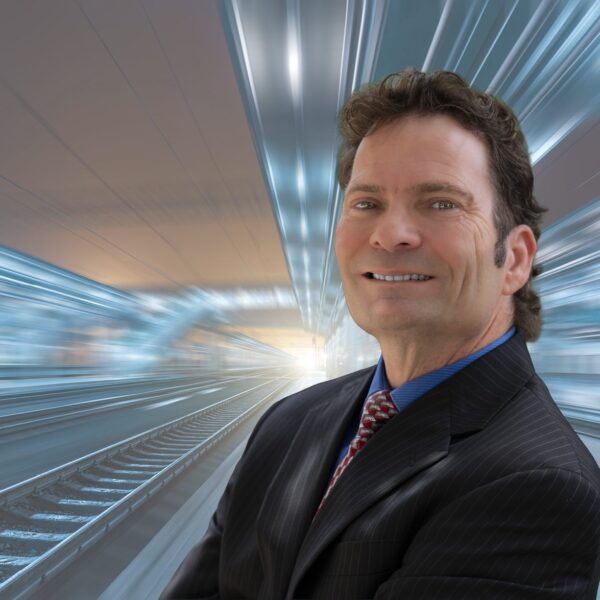

The collective value of experiential learning, mentorship, and upskilling is key to empowering engineers, accelerating career growth, maximizing opportunities, and driving industry innovation. Experiential learning goes beyond conventional education, merging theory with practical application and encouraging engineers to engage with their projects and think critically in real-world scenarios. Mentorship adds value by providing personalized guidance and insights from experienced professionals, crucial for the growth of emerging engineers and their understanding of practical applications. In addition, upskilling promotes continual learning and adaptation to new technologies and industry standards, helping both emerging and experienced engineers stay relevant and competitive. Together, this framework not only boosts career proficiency, but also accelerates industry success.
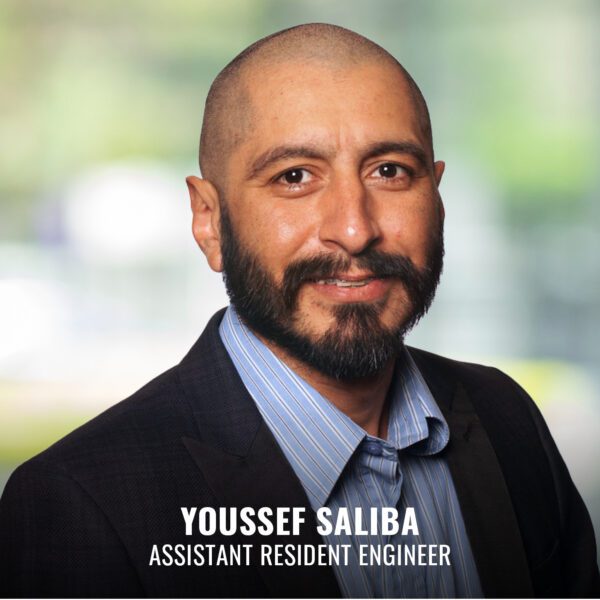
A Testament to Determination
One example of how a Hill team member embraced the benefits of experiential learning, mentorship, and upskilling is Assistant Resident Engineer Youssef Saliba, who recently became a certified Engineer in Training (EIT) and is on track to achieve his Professional Engineer (PE) license in the State of California. Youssef currently performs roadway construction inspections for various projects as part of the Santa Clara Valley Transportation Authority’s (VTA) highway capital program, with the goal of serving as a Resident Engineer.
Without a traditional engineering degree, Youssef’s path to becoming a licensed engineer was less conventional, relying on his 15 years of hands-on experience in the construction industry, informal mentorship, and self-directed learning.
“I have always had the dream of becoming a PE to further my career, but of course the goal seemed insurmountable,” Youssef says. However, he adds, “[First Vice President, Northern California Operations] Andy Kreck, my supervisor, approached me and gave me the confidence and motivation to start the long road and let me know of the opportunities available with Hill if I was able to achieve licensure.”
Youssef devoted himself to rigorous self-study in preparation for the Fundamentals of Engineering exam, the first of two examinations that engineers must pass to be licensed as a PE.
“I studied for about 1,000 hours over 6 months and successfully passed that exam, earning my EIT certification in California,” he recalls.
With more than six years of experience on the VTA team, Youssef continues to support multiple, highly technical highway projects, requiring proficiency in multiple areas of engineering disciplines. Through a combination of determination, on-the-job experience, skill development, and a strong support system at Hill, he is on track to achieve his PE license and take on greater roles of responsibility with Hill’s VTA team.
“Youssef is a top performer for a key client,” says Andy. “He’s proven himself in the field, and obviously he’s committed to his career.”
Bridging Theory and Practice
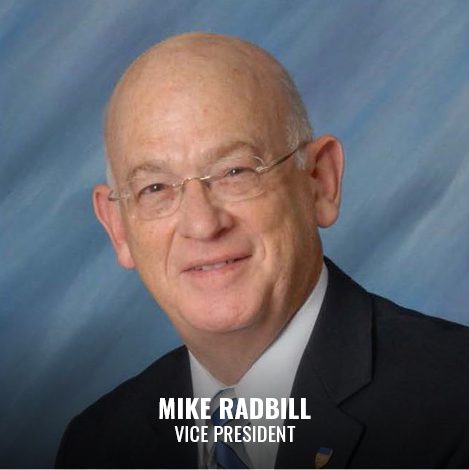
Hill Vice President Mike Radbill, a military veteran with more than 45 years of experience in the construction industry, brings a wealth of practical knowledge to his role as an educator at Widener University. In his Engineering 401 & 402 capstone course, Mike blends theoretical learning with real-world applications, enhancing the educational experience and growth of his students.
Through careful planning, Mike makes certain his courses are free from scheduling conflicts, allowing students to fully engage with real engineering projects that reinforce components of project execution. Drawing on his expertise, Mike focuses his lessons on topics like scheduling, cost estimating, and quality assurance while fostering student-driven and leadership-focused classroom practices. His approach goes beyond teaching technical content; Mike also emphasizes the development of core soft skills like public speaking and professional writing, which are essential in the professional world.
“For me it’s not so much about teaching as it is about leading and mentoring,” he shares. “My goal is to impart skills to students that will enable them to succeed when they graduate to the workplace.”
Widener’s capstone course and Mike’s teaching philosophy offer an exemplary model for architecture, construction, and engineering education that can be incorporated into mentorship programs for junior professionals.
Upskilling for Success
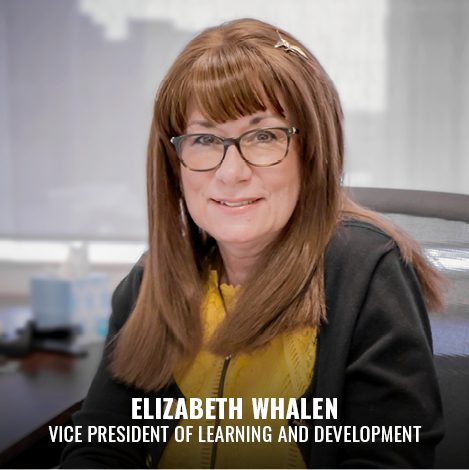
To keep pace with industry changes and evolving job requirements, Hill provides many resources for both emerging and experienced engineers seeking the skills and support to grow their careers and achieve their professional goals.
For engineers pursuing a PE license, Hill partners with a vendor to provide a complimentary virtual prep course, covering both live instructor-led and self-paced options. Successful licensure is further encouraged with the reimbursement of application and testing fees, plus a bonus under the company’s Professional Certification Incentive Program. To help engineers maintain their PE licenses, Hill partners with RedVector to offer them access to the AEC library, which includes thousands of courses for obtaining the required Professional Development Units (PDUs) at no cost.
“We focus on equipping our engineers with the necessary tools to excel in their careers and achieve their professional aspirations,” says Elizabeth Whalen, Hill’s Vice President of Learning and Development. “When our employees succeed, our teams succeed, and this translates to the projects we deliver. It’s a win-win for everyone at Hill, and a direct reflection of our ongoing commitment to supporting and developing our engineering talent.”
Share

June 23, 2025 | Articles
Jeffrey Hurley Joins Hill’s Northern California Rail Practice

June 23, 2025 | Articles
Ready, Set, Grow: First VP Chad Koelling Takes Charge of Hill’s Mountain West Region

June 8, 2025 | Articles
PMO in Saudi Arabia: The Holistic Approach to Realizing a National Mega-Portfolio
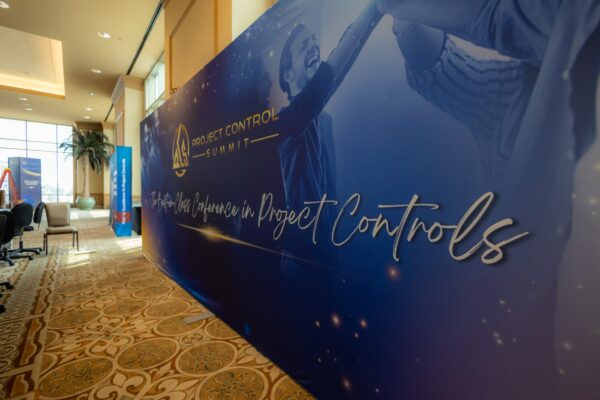
June 1, 2025 | Articles
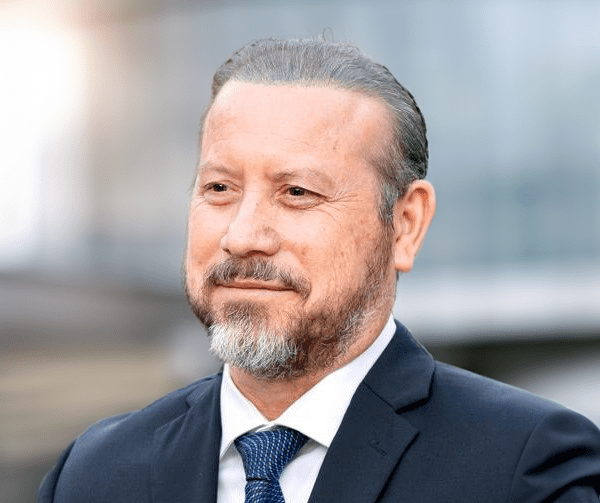
May 26, 2025 | Articles
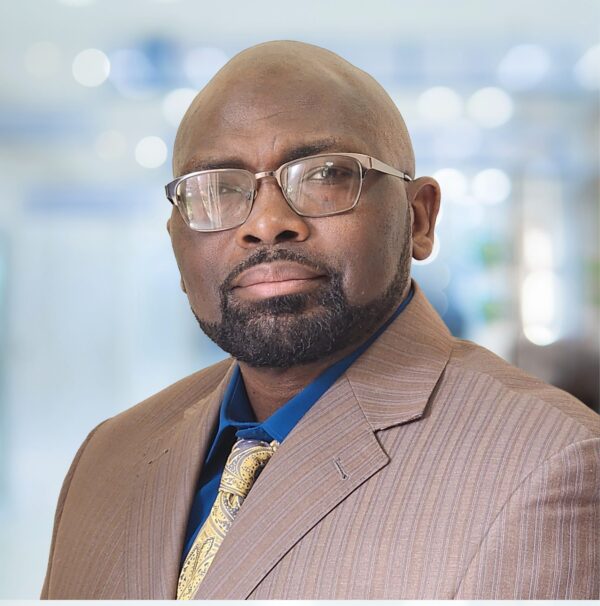
May 12, 2025 | Articles
Keeping Your Water/Wastewater Programs Flowing with Public Relations
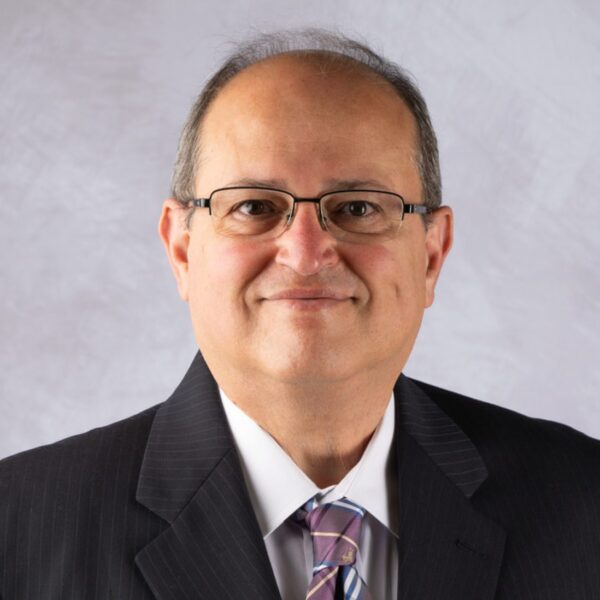
April 27, 2025 | Articles
Oiling the Machine: Steps to Successful Permitting on Infrastructure Megaprojects

April 20, 2025 | Articles
Sustainable Scaling: Solutions for Managing Risk on Europe’s Data Center Projects